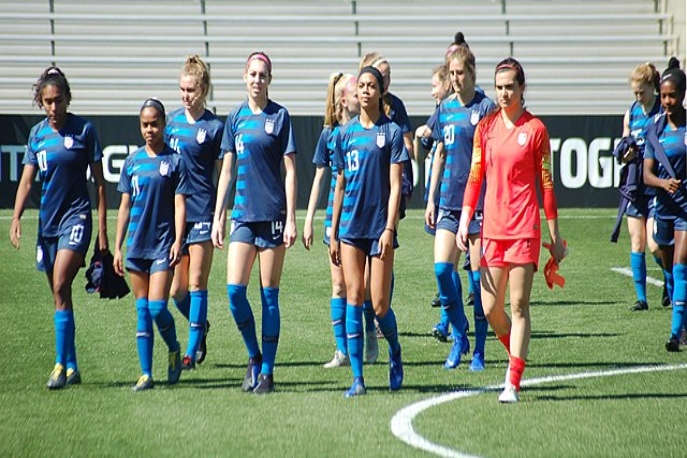Women’s Equality Day is this upcoming Saturday August 26 in honor of the 103rd anniversary of the adoption of the 19th Amendment, which granted women the right to vote in the United States. Women’s equality continues to be an ongoing pursuit with pay equity serving as a key example of the challenges women continue to face in society. The recently concluded FIFA Women’s World Cup has brought to light the pay disparity in men’s and women’s football, with many players and teams speaking out publicly on the issue.
The prize money for the men’s 2022 FIFA World Cup in Qatar was $440 million. The women’s prize money this year? $110 million, a $330 million difference from their male counterparts. Women’s champion Spain will receive $10.5 million while most recent men’s champion Argentina received $42 million. While a new payment model ensures that every player will see a cut of the prize money, the women’s event remains leaps and bounds behind the men’s from a pay perspective.
The U.S. Women’s National Team (USWNT) is regarded as a trailblazer in the space after achieving equal pay with their male counterparts last September, bringing a long fight with U.S. Soccer to a close. The struggle included a federal gender discrimination lawsuit brought forward by women’s team players against the governing body, ultimately resulting in a $24 million settlement.
The USWNT’s achievement in the fight for equal pay stands in stark contrast to the realities for many other national teams. Canada’s team went on a brief strike to argue for their right to equal pay. Finalist England was unable to resolve a dispute over a lack of performance-based bonuses – a result that would have ultimately proven extremely lucrative had the policy been in place. Round of 16 team Nigeria threatened boycotting its tournament opener over money players said their federation owed them. While the USWNT’s arrangement is the new standard, there remains a long road ahead.
Tensions over broader pay equity policies only heightened when FIFA President Gianni Infantino said women should “pick the right battles” to convince men what should be done over equality issues in soccer, then referring to equal pay in the Women’s World Cup as a “slogan that comes up every now and then.” His comments drew ire from players and spectators alike, especially as FIFA itself has lauded the growth of women’s soccer as “unlike any other sport.”
With the tournament in the rearview mirror, there will certainly be numerous analyses and postmortems of the on-field play, but also the off-field compensation debate. While the U.S. will celebrate 103 hard-earned years of women’s right to vote this Saturday, the Women’s World Cup shows that the fight for equality continues worldwide in all arenas – even on the soccer pitch.
RALIANCE is a trusted adviser for organizations committed to building cultures that are safe, equitable, and respectful. RALIANCE offers unparalleled expertise in serving survivors of sexual harassment, misconduct, and abuse which drives our mission to help organizations across sectors create inclusive environments for all. For more information, please visit www.RALIANCE.org.

